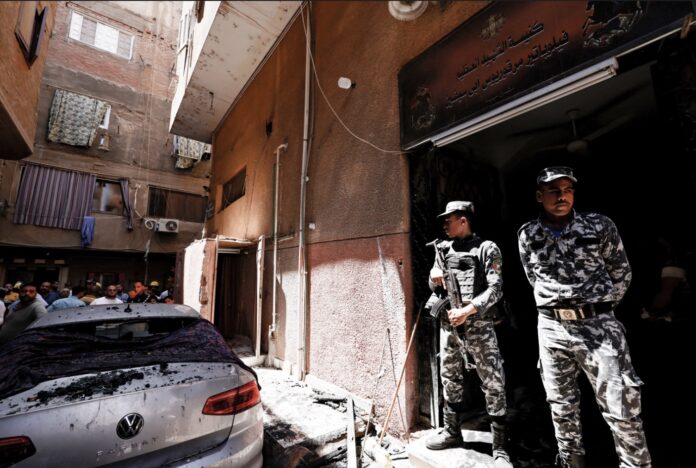NEW YORK – Egyptian authorities must immediately and unconditionally release journalists Mohamed Mostafa Moussa, Amr Shnin, and Mahmoud Saad Diab and cease detaining journalists for their work, the Committee to Protect Journalists said Wednesday.
On Monday, state security officers arrested Moussa, a freelance journalist who contributes to independent news websites Masr al-Arabia and Al-Bawabh News, at his home in the northern city of Alexandria, according to news reports and a local journalist following all three cases who spoke to CPJ via messaging app on the condition of anonymity citing fear of reprisal.
According to that journalist and a report by local news website Darb, on October 9, state security officers arrested Shnin, a reporter for the independent news website Arab Ofok, at his home in the capital, Cairo. Separately, the local journalist told CPJ that on September 6, state security officers arrested Diab, a reporter for state-run newspaper Al-Ahram, from Cairo International Airport as he boarded a flight to China, according to news reports.
As of November 8, the whereabouts, charges, and reasons for the arrest of Moussa, Shnin, and Diab are unknown, according to the local journalist.
“By arresting three journalists ahead of the U.N. Climate Change Conference (COP27), President Abdel Fattah el-Sisi’s government is making a clear statement that it does not care for the protection of journalists or human rights,” said Sherif Mansour, CPJ’s Middle East and North Africa program coordinator. “Egyptian authorities must release journalists Mohamed Mostafa Moussa, Amr Shnin, and Mahmoud Saad Diab, and allow journalists to work freely without fear of detention.”
Human rights defenders have been pressuring Egyptian authorities to improve the state of human rights and release imprisoned journalists, including Alaa Abdelfattah, ahead of COP27, which will be held in Sharm El-Sheikh on November 11.
Last week, CPJ joined more than 60 human rights groups in calling for the release of Abdelfattah, whose health is gravely deteriorating as a result of a hunger strike.
CPJ’s email to the office of the Ministry of Interior, which oversees the security forces and prison system, did not receive a response.







